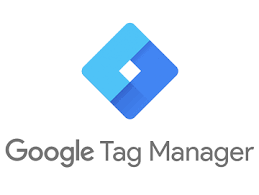If you’ve been a part of a digital marketing team before, you’re likely familiar with the phrase “Hurry up and wait.” The straightforward task of launching a new PPC campaign is, in fact, a synchronized chain reaction of countless small tasks accomplished by multiple members of different teams, with each task dependent on the completion of its preceding task. As efficient as a team can be with internal processes, it can only move as fast as the slowest piece. Often for digital marketing teams, development deploying necessary remarketing tracking codes and conversion tracking snippets on a site can throw a wrench in timelines.
Tag management systems were born from this need for faster and more nimble tracking implementation. These swiss army knives of the marketing toolbox have become the must-have tool for marketing teams. Google Tag Manager (GTM) is the most prominent of these systems; a powerful and indispensable platform.
How can Google Tag Manager help marketing and development teams?
 Instead of passing along detailed code requests to developers, GTM acts as a portal to your website’s code allowing you to install these tags in less than 5 minutes. By assigning appropriate levels of authorization, a marketing team can handle all the setup of analytics and tracking tags and then pass along any alterations to their client or development teams to publish. This sidesteps one of the most frequent bottlenecks in launching a campaign and prevents development teams from being hassled with a barrage of code additions.
Instead of passing along detailed code requests to developers, GTM acts as a portal to your website’s code allowing you to install these tags in less than 5 minutes. By assigning appropriate levels of authorization, a marketing team can handle all the setup of analytics and tracking tags and then pass along any alterations to their client or development teams to publish. This sidesteps one of the most frequent bottlenecks in launching a campaign and prevents development teams from being hassled with a barrage of code additions.
Clean up your tracking methods
On top of eliminating the need to rely on developers for installation of tracking snippets and code, it keeps your site running fast and uninhibited. By organizing all of your javascript-based tracking codes into a container that loads asynchronously with your site, your on-page content will be loads alongside the tracking codes installed through your Google Tag Manager container. Moreover, by organizing all of your tracking tags through a tag management system, you’ll never again lose track of what tags are active on your site, as they’re all stored cleanly and neatly within one container.
When it comes to cleaning up onsite codes and simplifying tracking setup, GTM has also had a massive impact on the cleanliness and simplicity of setting up event tracking in Google Analytics. Instead of hard-coding, GA event hits into your website, you’re now able to quickly configure and debug events you’d like to track without the headache. Form submission tracking is a snap, engagement tracking for on-page content is a breeze, and link click tracking is a walk in the park!
Learn more about Google Tag Manager for your business
There are a myriad of outstanding blogs dedicated to the elaborate ways you can enrich your Google Analytics data through event tracking in GTM, so I won’t fall too far into this rabbit hole of tracking possibilities in this post. To paint a picture of the possibilities, I will point you to this article by Simo Ahava & Jethro Nederhof where they outline how to track browsing behavior across multiple tabs by saving client ids, sessions ids, hit timestamps and tab IDs as custom dimensions and stitching them together for analysis. Crazy awesome stuff.
Lastly, with GDPR taking effect last month, GTM has made it easier than ever to incorporate cookie consent solutions that enable and inhibit tracking tags to fire. The implementation of GDPR compliance features could be a daunting event for many, but with a clever GTM configuration, you’re able to document cookie consent, restrict tags from firing when consent isn’t given, and even dynamically enable IP anonymization for EU traffic. All this to ensure your geographic data in GA is accurate outside of the EU while staying compliant within.
The essential features of Google Tag Manager
- One simple place for faster and easier deployment of tracking capabilities
- Organized javascript-based tracking codes make for a faster site loading time
- Easily manage, monitor and expand your tracking capabilities in Google Analytics
- Deploy GDPR and other privacy-related compliance features through one platform
Get in touch for more information on how we may be able to help you better collect actionable information from your digital marketing efforts.

